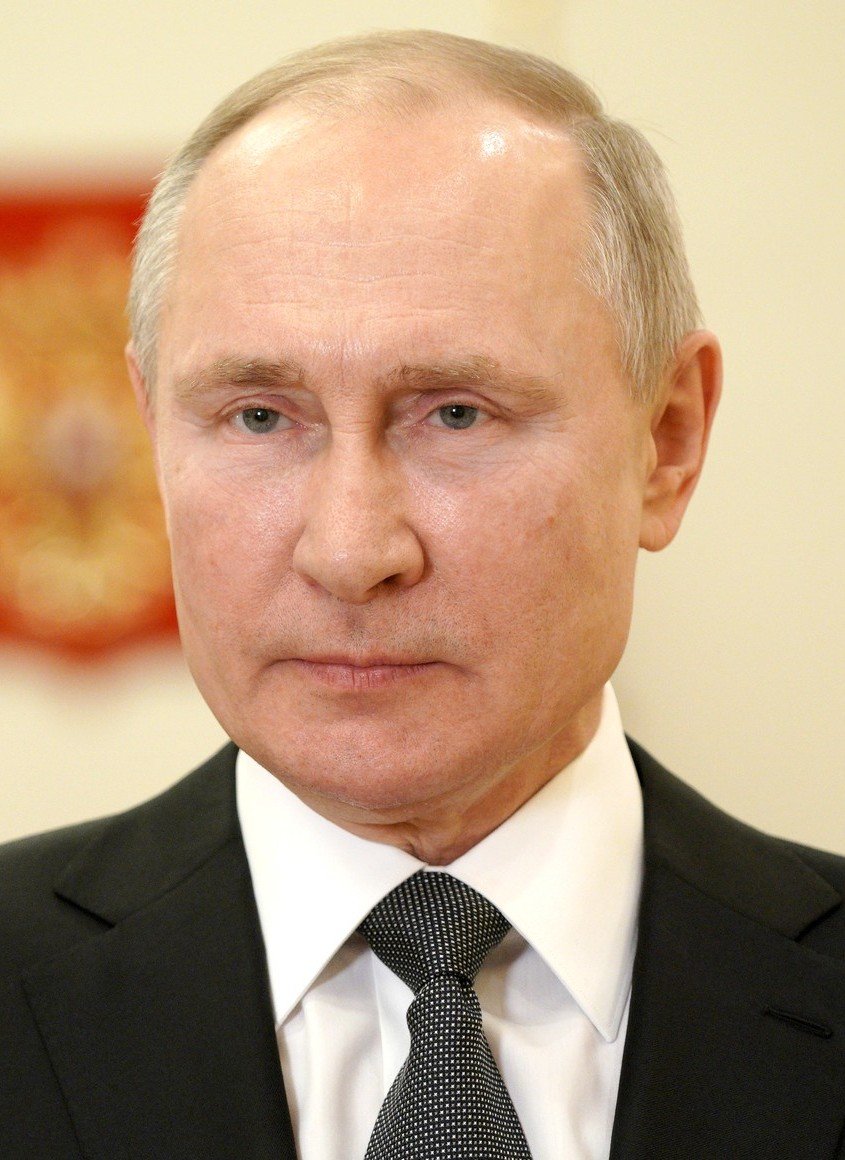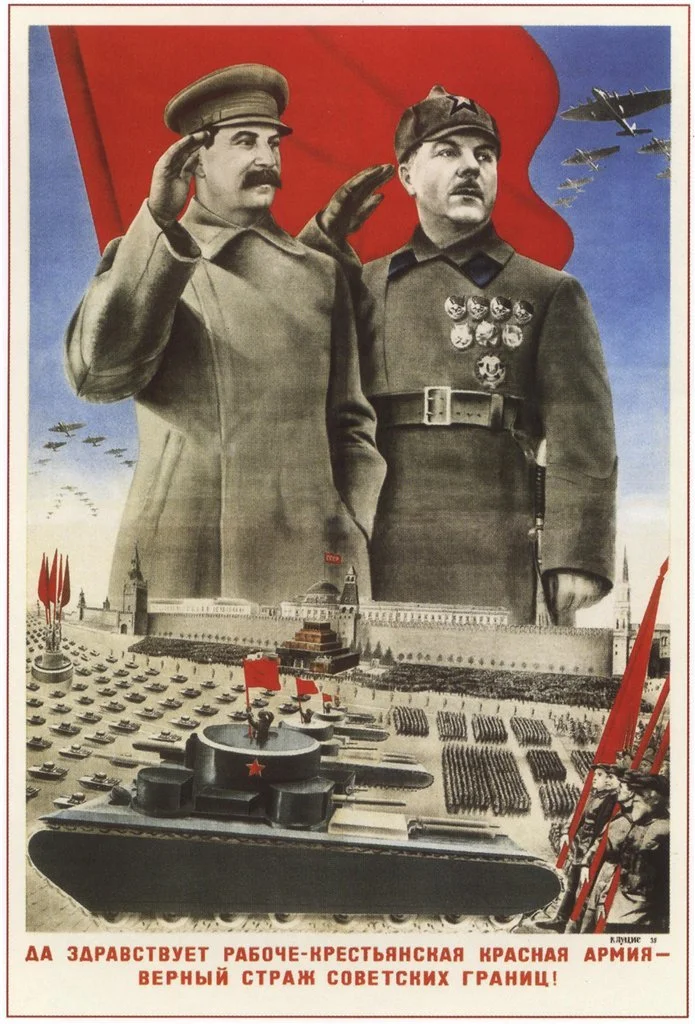Time to dust off the Containment Doctrine By James L. Bruno
I was privileged to have had a ringside seat during the fall of communism in Europe. As aide to the State Department’s top official dealing with Europe, I got to read all the diplomatic and most intelligence reporting as events broke. And I was privy to our government’s policy deliberations. This included highly restricted transcripts of President George H.W. Bush’s discussions with his European counterparts and Soviet leader Mikhail Gorbachev. Bush, with his many years’ experience with national security, was the right president at the right time, having handled statecraft masterfully, backed by a strong diplomatic team.
Vladimir Putin’s name turned up only tangentially in diplomatic reporting, as I recall. He was appointed head of international relations for the city of Leningrad by that city’s dynamic mayor, Anatoly Sobchak. Putin’s profile rose when he became the subject of an investigation over some shady commodities trading; it was never clear whether he acted out of incompetence or corruption. Knowing what we know now, I strongly suspect the latter. In true Soviet/Russian form, he got off scot-free.
Putin was just one in a wave of budding siloviki - men who entered post-Soviet politics from the KGB, military or other security services. Quick to adjust their professional lives, few changed their mindsets, locked in hoary Russian insecurities and Soviet paranoia. Many became millionaires and billionaires during the Wild East days of free-for-all privatization of Soviet industry.
We see this mindset at play today as Putin pushes Europe into a potential land war not seen since World War II. At heart, he is: 1) a Russian nationalist; and 2) a KGB officer. I see a Soviet leader minus the ideology but awash in plundered wealth, backed by a coterie of robber baron oligarchs. Psychologically a captive of his country’s violent past and stunted development, he views events in terms of encircling enemies, tribalism and ancient glory. He once told Joe Biden that “You look at us and you see our skin and then assume we think like you. But we don’t.” To emphasize his point, Putin slid his index finger down his white cheek. He elaborated on this further publicly, “We have a different genetic, cultural and moral code. But we know how to defend our own interests.”
To keep Moscow in check during the Cold War years we pursued a policy of “containment.” It’s time to dust it off, tweak it and put it back in place if we are to halt Russian expansionism and aggression. The post-Soviet period is now over. Russia, under Vladimir Putin, has entered a new era — call it neo-tsarism.
Photo from wikipedia
The Containment Doctrine was authored by legendary American diplomat George F. Kennan in the late 1940s in response to Joseph Stalin’s aggressive expansionism. It called for the United States “to confront the Russians with unalterable counter-force at every point where they show signs of encroaching upon the interests of a peaceful and stable world.” While Kennan envisioned soft power, i.e., political, economic and diplomatic leverage to keep the Soviets in check, events led to military power as the requisite main counter force.
A Russia expert, Kennan accurately described the centuries-old Russian character:
“At the bottom of the Kremlin’s view of world affairs is a traditional and instinctive Russian sense of insecurity.” Viewing the rest of the world as hostile provided an excuse “for the dictatorship without which they did not know how to rule, for cruelties they did not dare not to inflict, for sacrifices they felt bound to demand.”
The leadership, he said, operated on two distinct levels: a formalized government, and a network of security operatives essentially unconstrained by laws. While the former engaged in international diplomacy, the latter worked to undermine the West, including efforts to “disrupt national self-confidence” and “stimulate all forms of disunity.” Kennan concluded that the Soviets were of the conviction that reconciliation with the West was not possible.
This was mirrored by the Truman administration. Realizing that Moscow’s paranoid grievances against the U.S. and its allies were groundless, it therefore made little sense to try and address them. A policy of containing Soviet ambitions therefore was the best and only realistic option. The hope was that one day the regime would either mellow and change or collapse altogether. In 1991, the USSR fell apart. Key to its demise was a rigid and stagnating economy and a stultifying political system that lacked procedures for an orderly leadership succession.
Faced with a resurgent Russia, headed by yet another strongman pursuing aggression and expansionism (currently against Ukraine), the thrust of U.S. policy toward Russia — in the words of George Kennan — “must be a long-term, patient but firm and vigilant containment of Russian expansive tendencies.” And to achieve that goal, we must focus our strength on Moscow’s “center of gravity,” a term used by Clausewitz signifying the source of your opponent’s power and strength and “the point against which all our energies should be directed.” This would be Russia’s economy.
Swiss national security scholar Henrik B. L. Larsen lays out succinctly this key vulnerability of Russia:
Russia remains a regional threat, which requires a certain level of military preparedness. However, the West should also take into account the domestic financial and psychological constraints that the Kremlin faces. Russia has invested heavily in military modernization since 2009, but its budgets are strained and sensitive to how defense spending may affect the “social contract” with the Russian people on which President Vladimir Putin relies. Keeping the costs low has been a key objective in Russia’s recent military interventions in Georgia, Ukraine, and Syria. Even if it never faced superior force in Ukraine’s Donbas region and even if it mostly played a supporting role for separatists, the protracted conflict there has been a costly and messy affair for Russia.
Cold War history teaches that economic weakness at some point should force Moscow to the negotiating table. The Russian Federation shares some of the key vulnerabilities of its Soviet predecessor, which in the end sought negotiation because it could no longer afford an expensive arms race with the West. Russia is vulnerable to fluctuations in world gas and oil prices and recognizes the problems caused by its lack of development and continued reliance on raw material exports. It would like the West to lift the economic sanctions imposed after 2014 and it needs Western investments and access to Western markets for economic growth. The logic of neo-containment suggests that a stagnating Russia, if facing a self-confident West, will eventually seek dialogue and perhaps even détente.
Photo from wikipedia
Maintaining 190,000 troops and attendant equipment in a constant military land and sea encirclement of a country the size of Ukraine isn’t cheap. What the military call “operations tempo” alone sucks huge financial resources away from necessities like paying the bills of civilian governmental functions. With 145 million people and being twice as large as the U.S., Russia has a GDP that ranks eleventh place among world economies, trailing, each, the UK, France and Italy. It has a declining population and health and life expectancy indicators. Two-thirds of its exports come from petroleum.
Moreover, rule of law does not guide the Russian economy, as noted by journalist Brian Whitmore:
Unlike the Soviet Union, today’s Russia isn’t an ideological power seeking global hegemony through military expansion. It is essentially a crime syndicate masquerading as a state. Putin and the made men who make up his inner circle deploy corruption as a tool of statecraft in order to perpetuate their rule, expand their reach, and enrich themselves.
Rather than an Iron Curtain with armies facing off across the Fulda Gap, the main fault line of the current conflict is between a Western zone of transparency and a Moscow-dominated sphere of corruption. Any containment policy, therefore, needs first and foremost to limit Russia’s sphere of corruption and extend the Western zone of transparency.
Given these factors, Russia is very vulnerable to economic forces.
The Biden administration has done an outstanding job of assembling a range of triggers to inflict severe and enduring punishment on Putin should he invade Ukraine. These include diplomatic actions and economic and military aid to the Ukrainians. But above all, economic sanctions that would cripple Russian banking and businesses and those targeting Putin’s chief backers, the oligarchs, would hit the Russian center of gravity hard.
But even should Putin blink and not invade, the U.S. and it allies need to keep Moscow in check via a new containment doctrine with economic power at its core. Shutting down or suspending projects such as the Nordstream II oil pipeline, investigating and punishing Russian oligarchs for corruption abroad, replacing Russian oil with other sources, greatly restricting exports of semi-conductors are just some of the measures the West can use to constrain Putin and force him eventually to seek accommodation with civilized nations. These measures can be modulated depending on Moscow’s behavior.
The Biden administration will soon release its National Security Strategy (NSS), a document all administrations issue laying out in broad terms the thrust of a president’s foreign and defense policies. The Pentagon takes its cue from this document to issue its own National Defense Strategy, also due out soon. In its Interim National Security Strategy shortly after taking office, the Biden administration touched on its Russia policy:
Russia remains determined to enhance its global influence and play a disruptive role on the world stage. Both Beijing and Moscow have invested heavily in efforts meant to check U.S. strengths and prevent us from defending our interests and allies around the world… [T]he United States’ enduring advantages—across all forms and dimensions of our power—enable us to shape the future of international politics to advance our interests and values, and create a freer, safer, and more prosperous world.
I would expect the new strategy document to basically encompass and formalize the current policies vis-à-vis Russia. But a long-term containment strategy should also be included.
As Vladimir Putin overreaches in pursuing his expansionist ambitions, it behooves us, again, to pay heed to George F. Kennan’s keen observations regarding Russia:
“Impervious to the logic of reason, and it is highly sensitive to the logic of force. For this reason it can easily withdraw — and usually does — when strong resistance is encountered at any point. Thus, if the adversary has sufficient force and makes clear his readiness to use it, he rarely has to do so.”
James Bruno (@JamesLBruno) served as a diplomat with the U.S. State Department for 23 years and is currently a member of the Diplomatic Readiness Reserve. An author and journalist, Bruno has been featured on CNN, NBC’s Today Show, Fox News, Sirius XM Radio, The Washington Post, Christian Science Monitor, Huffington Post, and other national and international media.







